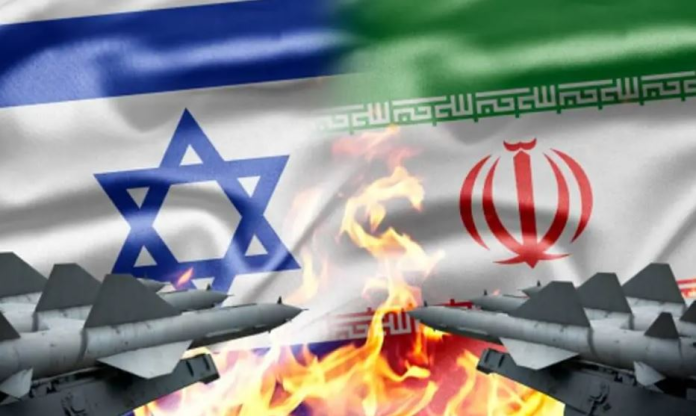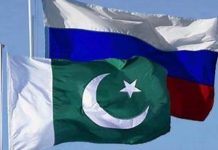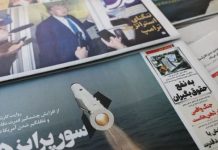Few rivalries are as deeply rooted, ideologically charged, and dangerously poised for escalation as that between Iran and Israel. What was once a shadow conflict, waged through proxies, cyberattacks, and strategic assassinations, has now erupted into a full-scale war. While relations with the clerical Iranian regime simmered for decades, Israel had been intelligently arranging the chessboard for a final showdown. Abraham Accords signed, Egypt firmly aligned after regime change, Iraq and Syria neutralised, Hamas decimated, Hizbullah deterred, Huthis curtailed, Russia consumed in Ukraine, China focused on South China Sea; the geo-political environment disturbed the balance of power equation, or so Israel believed, and this prompted her to engage Iran militarily.
Israel’s military doctrine emphasises quick, high-intensity operations and maintaining technological superiority over its opponents. Its $46.5 billion annual defence budget, which is three to four times greater than Iran’s, gives it a clear technological edge in cyber, space, combat aircraft, and air defence. Sending 200 combat aircraft deep into Iran to hit multiple targets in a single, precision strike with minimal attrition is a manifestation of its air superiority, if not supremacy. Israel’s other key performer in the war has been an intelligence network, mainly hired locals, that facilitated early clandestine strikes that killed top military leadership, sending shock waves across all ranks. This early leadership paralysis, much advocated in Col Wardens’ ‘Five Ring Theory’, was exploited to destroy Iran’s core nuclear sites in its first offensive. With this trumpeted war objective seemingly accomplished in the initial phase, Israel’s subsequent operations appear focused on blunting Iran’s retaliatory missile strikes and systematically degrading its economic infrastructure, aiming to weaken Tehran’s capacity for a sustained conflict. The contemplated goal of regime change can be objectively assessed only after analysing the evolving air campaign and associated targeting strategy. But how will the Iranians, already united in fury over Israeli aggression, ever support a regime planted by Israeli hands? Unless it is another Egyptian ‘Sisi’, meant to rule through strength and borrowed authority.
The majority of Iran’s over 90 million population is hardened by religious faith, and it has displayed incredible resilience in its war against Iraq. Iran’s military strategy compensates for its older equipment by relying on a larger force size and focusing on missile, drone and cyber technology. It also leverages asymmetric warfare tactics, including the use of militant forces present in the Middle East. However, it so far appears that the only credible weapon that can reach Israel is the Iranian supersonic/hypersonic missile. To date, there has been no news of any guerrilla action from aligned militant groups, and the formidable Islamic Revolutionary Guard Corps is unable to deploy to Israel. There are reports that Iran could have some deadlier weapons up its sleeve to be used for escalation control or trading in the final negotiations.
According to the Stockholm International Peace Research Institute (SIPRI) report of 2025, Israel has approximately 90 nuclear warheads, but Israel maintains deliberate ambiguity as part of its policy. Given the reckless nature of Israel’s mindset, one is intrigued to question what the Israeli nuclear threshold could be. By logic, it should lie at a point where there is complete collapse of conventional defences and imminent urban destruction. For a small state of 10 million, large-scale civilian casualties could be intolerable. During the Yom Kippur War, when Israel was caught off guard, reportedly, Golda Meir approved the alerting of nuclear-capable Jericho missiles. Iran, therefore, will be constrained to respond within the perceived allowable conventional space under the nuclear overhang.
There are signs of direct military involvement by the US troops, which is likely to widen the scale and intensity of the war. It is expected that the US, historically averse to body bags, may opt for this option only when the Iranian resistance has significantly weakened. If so, then Iran could decide to widen the scope of war and attack US/Israeli interests in and beyond the Middle East, like their troop deployments, embassies, shipping in the Gulf/Red Sea, or other business centres. The Russian and Chinese lukewarm reaction to such a scenario will be painful for the Iranians.
Israel’s air superiority and its ability to conduct precision strikes deep inside Iran provide it with a significant operational advantage. Historically, no nation that enjoyed air superiority has lost a conventional war; the Russian defeat in Afghanistan had different parameters. It remains a puzzle why Iran could not strengthen its Air Force with Chinese or Russian aircraft; the reported Russian SU-35 deal could not become a factor in this war. Yet Israel’s advantage is not absolute. Iran’s sustained missile attacks threaten Israel’s small territory and its civilian centres, putting intense pressure on it to seek direct American military intervention. For Iran, safeguarding its war stamina and its missile arsenal would be important. She may consider inventing an out-of-the-box active role for the Islamic Revolutionary Guard Corps and reenergize Hamas, Hezbollah, and the Houthis for asymmetric warfare inside Israel. Ultimately, despite high-intensity exchanges, a negotiated settlement appears more probable than outright victory for either side.
The Iran-Israel war raises concerns about sovereignty, aggression, and realpolitik. Any weakening of the Iranian state is against Pakistan’s national interest, as Iran acts as a buffer between nuclear Pakistan and an untamed Israel. The key doctrinal points for Pakistan from this war are: You stand alone in your fight for sovereignty, protect and advance the nuclear program; prioritise airpower and missile capabilities; synchronise covert and overt operations to achieve operational surprise; conduct operations against moles working for foreign agencies; and improve the economy to bolster national security.
Air Vice Marshal M Z Faisal (Retd) HI(M) is an independent writer. He may be reached at [email protected]

















